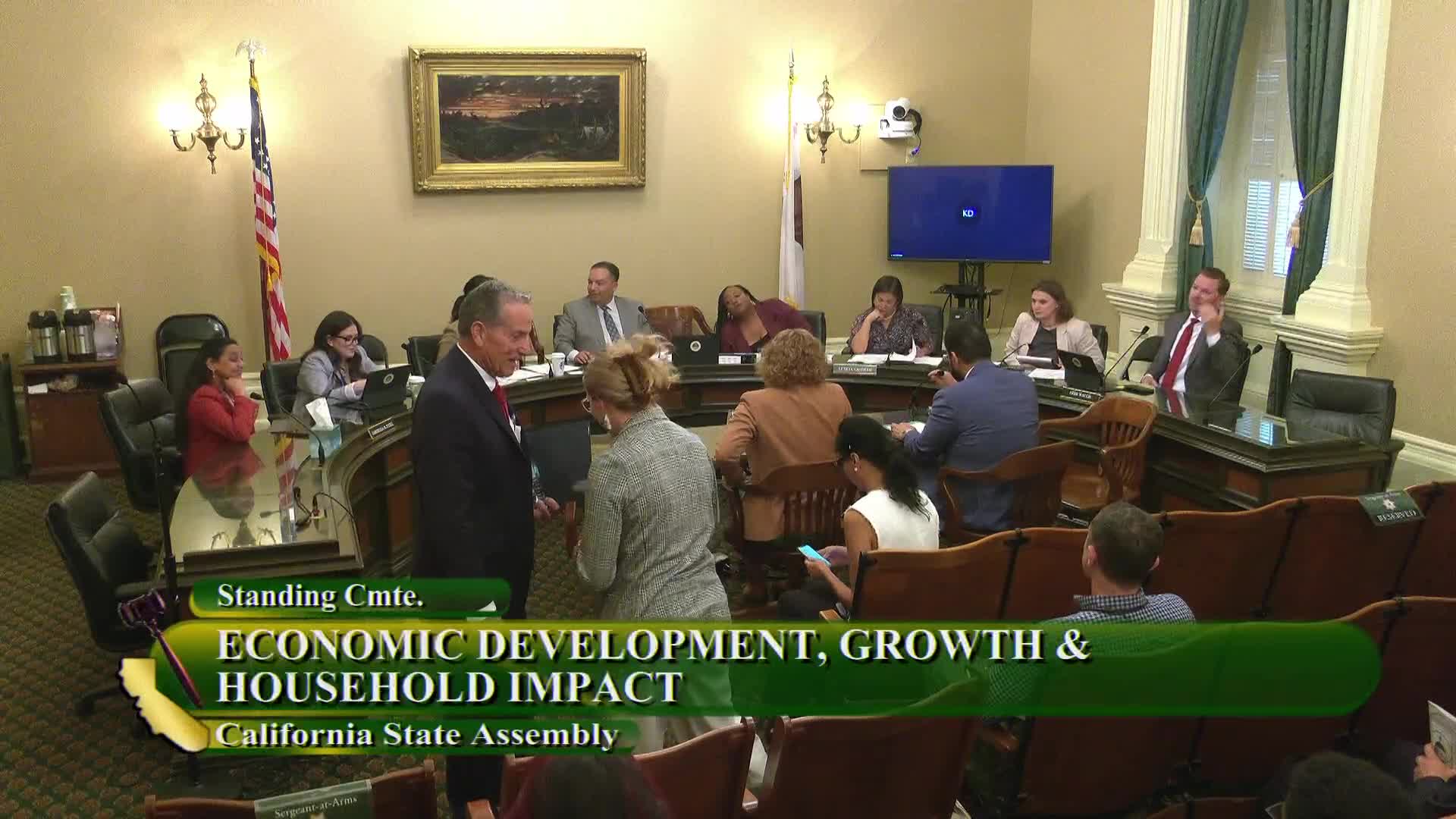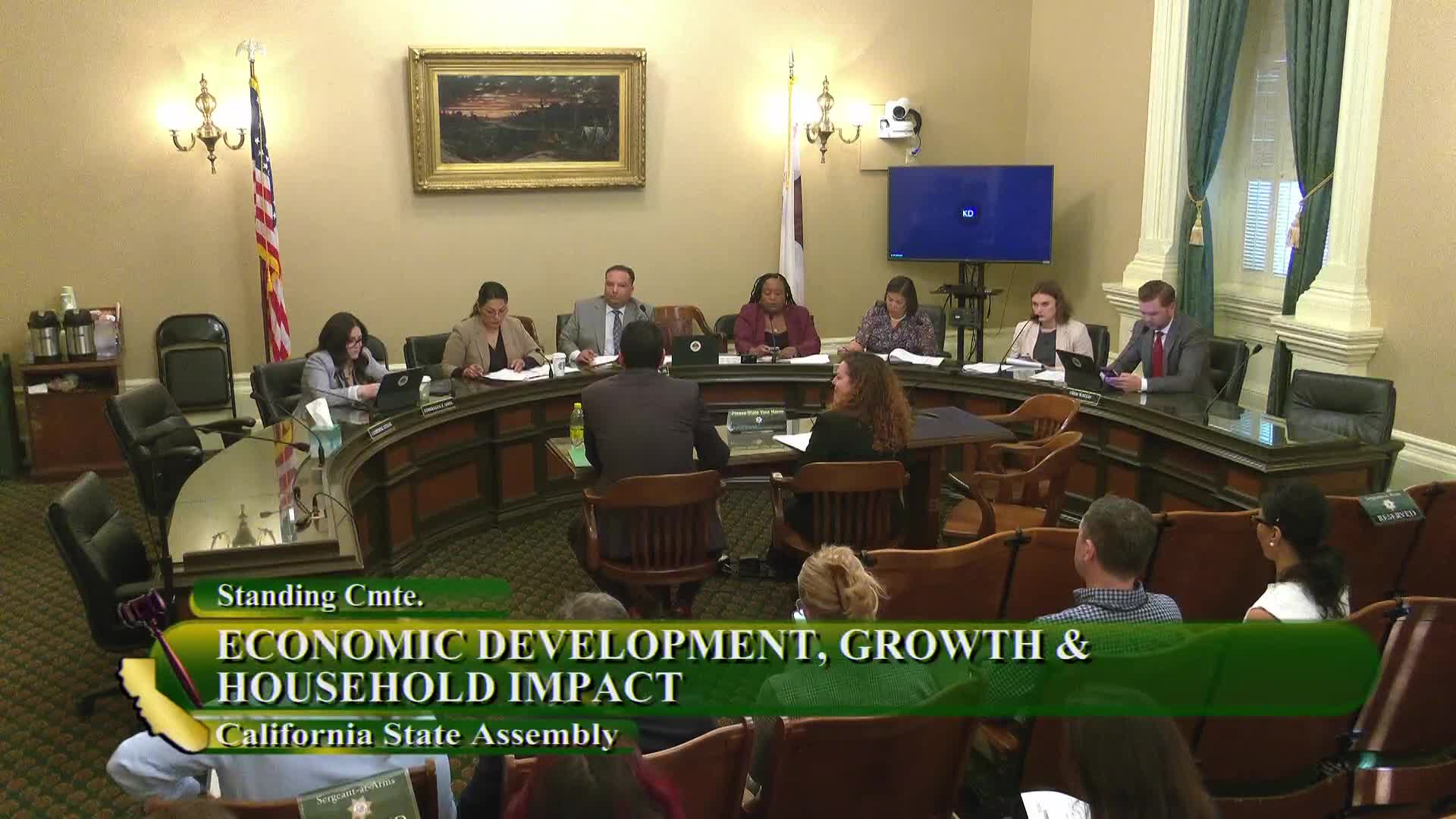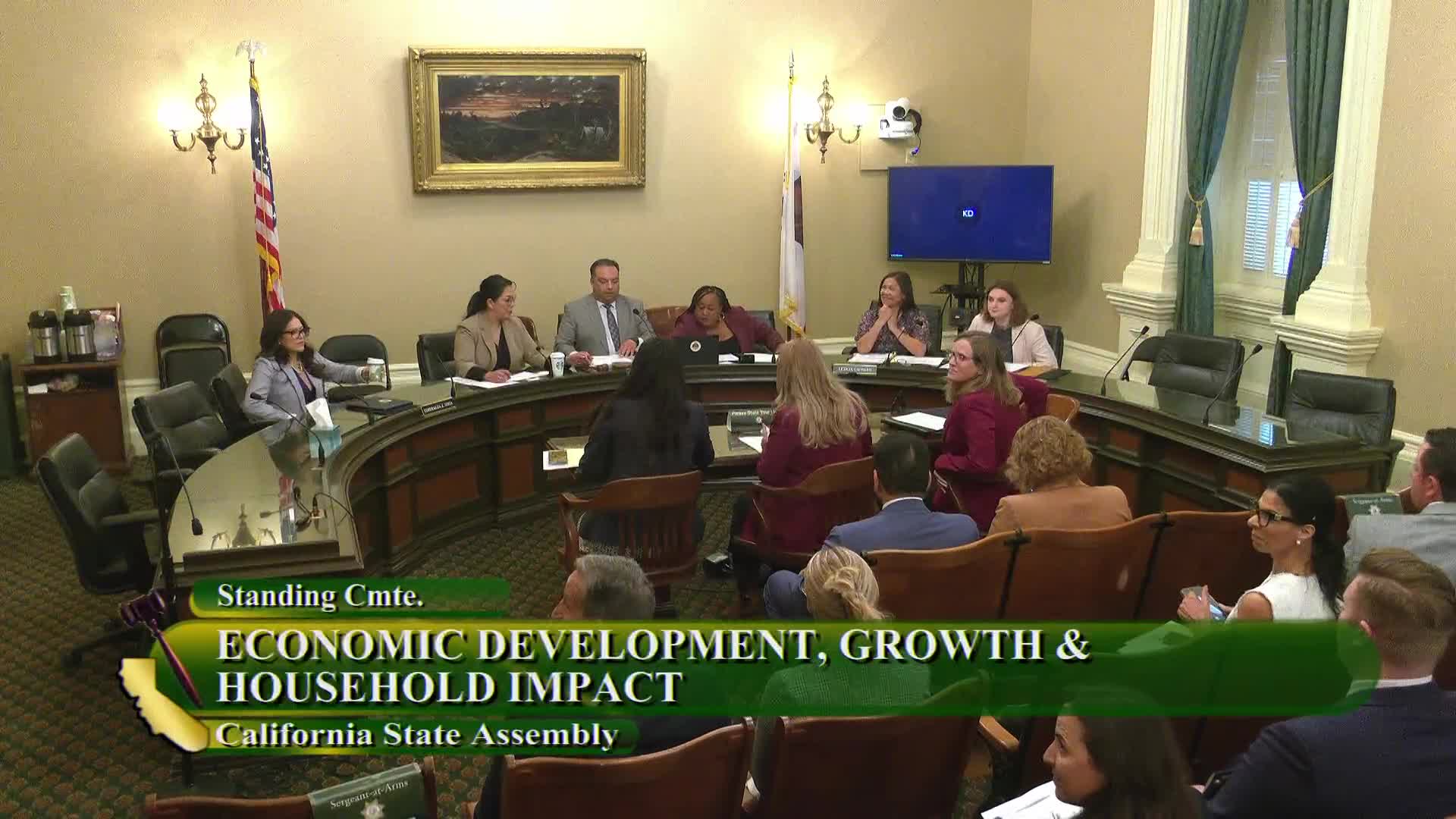Article not found
This article is no longer available. But don't worry—we've gathered other articles that discuss the same topic.

Committee advances Carrillo bill to pilot expedited grid interconnection and microgrids in fast-growing regions

Committee advances grant program to help small retailers pay for theft-prevention upgrades

Assembly committee advances bill to create 'quantum innovation zones' in California

Committee advances Community Stabilization Act to help wildfire victims sell homes without predatory offers

